January 2, 2024
Progression: Plans, Plants, and Philosophy
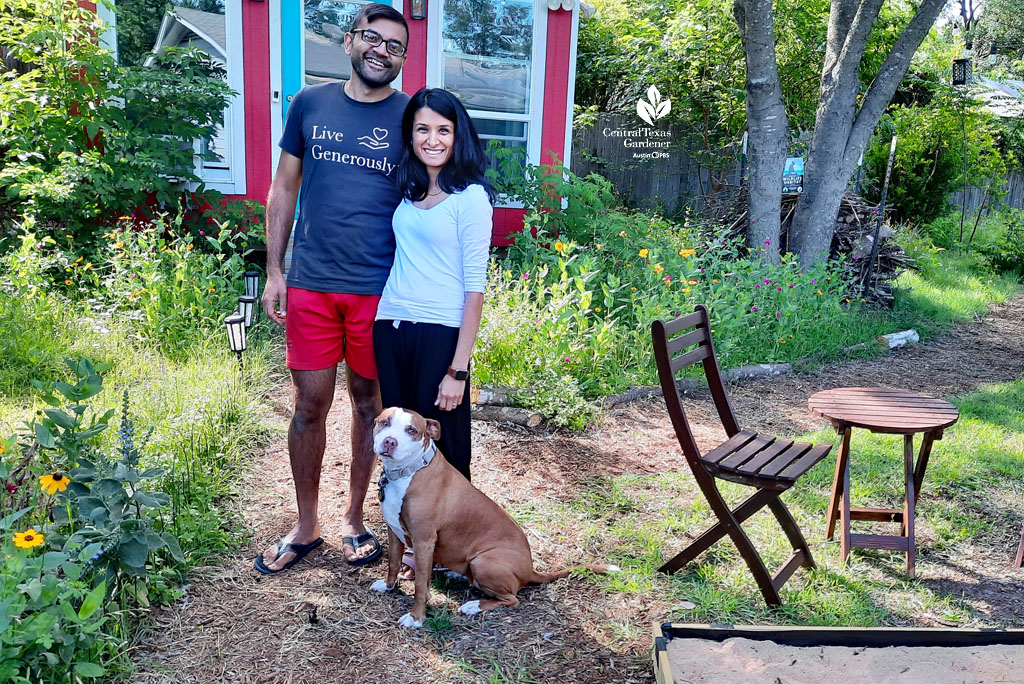
“Our dream was to buy a house with a big yard so our dog [Tina] can roam free. She’s a Manhattan dog, so she’s never seen space or yard,” Mansi Parikh told us on our visit in May. But husband Aditya Prasad wasn’t totally on board with that idea. “I was looking for a house with no yard because I’m going to be the one mowing the lawn, taking care of it. I had never done anything with plants before this,” he said.
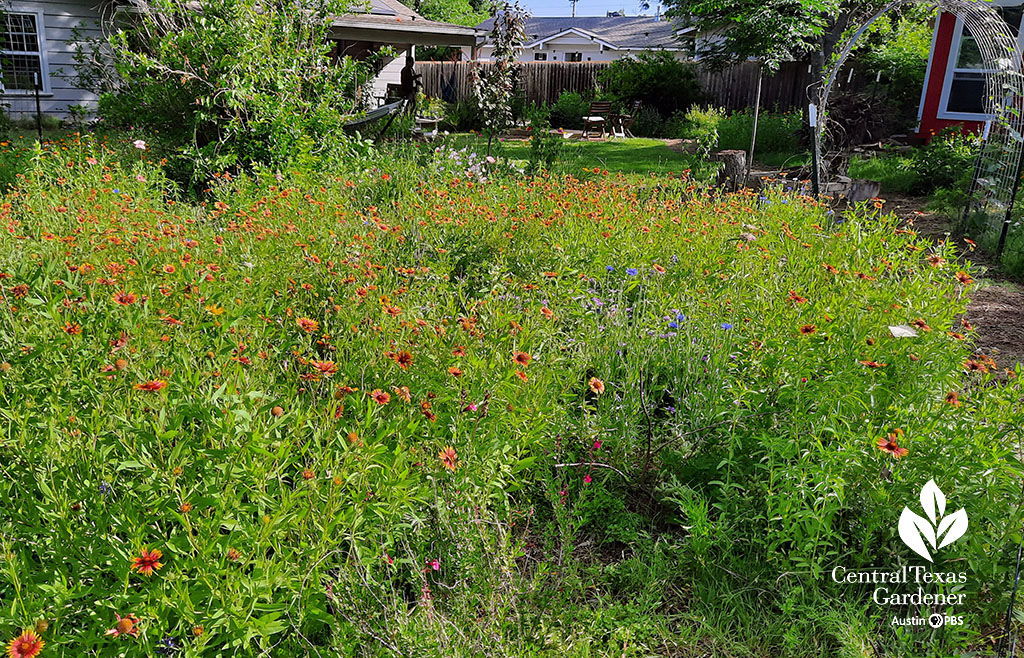
Never did he imagine that plants were about to change his life. “As I become more in touch with this garden, I rediscover that there’s something primal about that. It’s like a reconnection to our roots as humans. I know it sounds kind of weird to say, but it really does feel like something that’s missing from modern life, which I’m really welcoming back.”
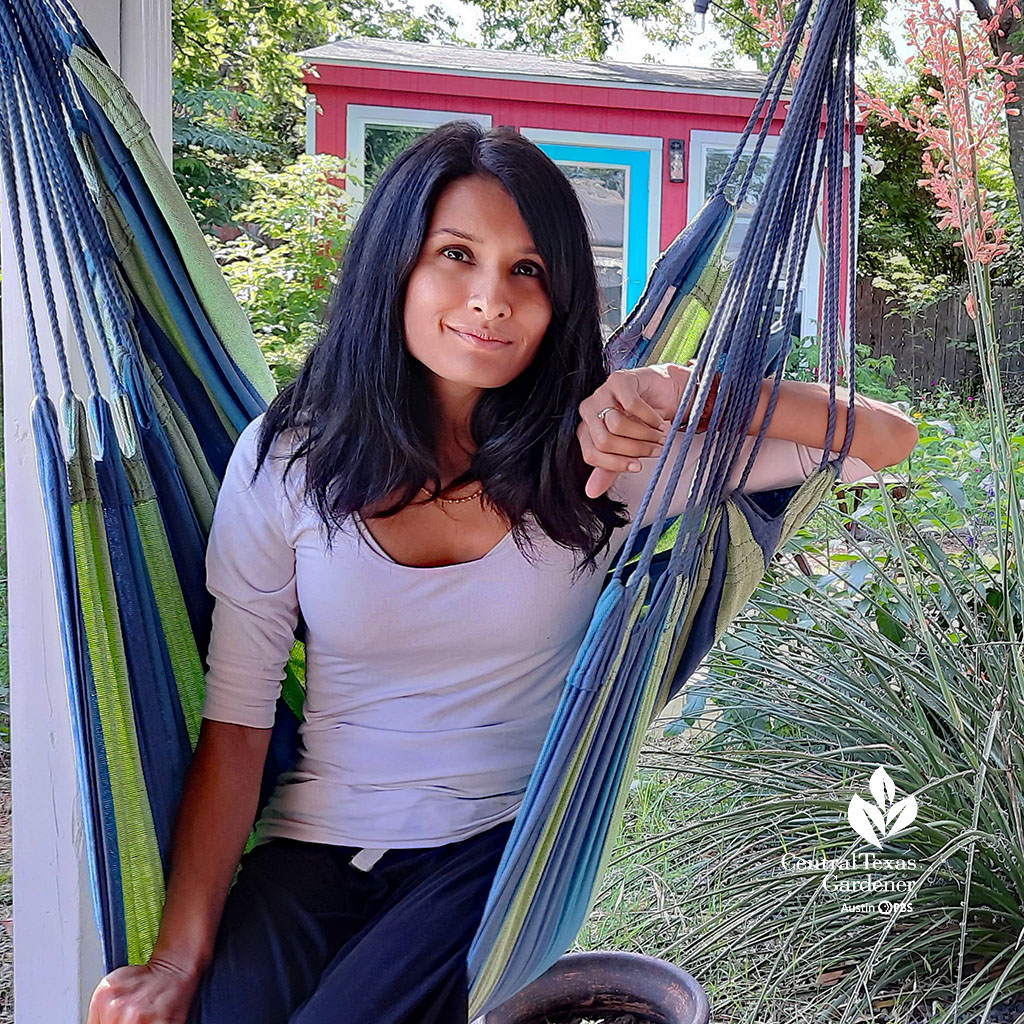
But let’s return to March 2020 when they closed on the house just days before pandemic lockdown. The same week, they learned that a baby was on the way. That inspired Mansi and her brother Urvish to envision a food forest for the young family. A year later they worked with landscapers to remove Bermuda grass and plant 300 fruit trees and perennials. Between new parenthood, drought and novice mistakes, it failed big time.
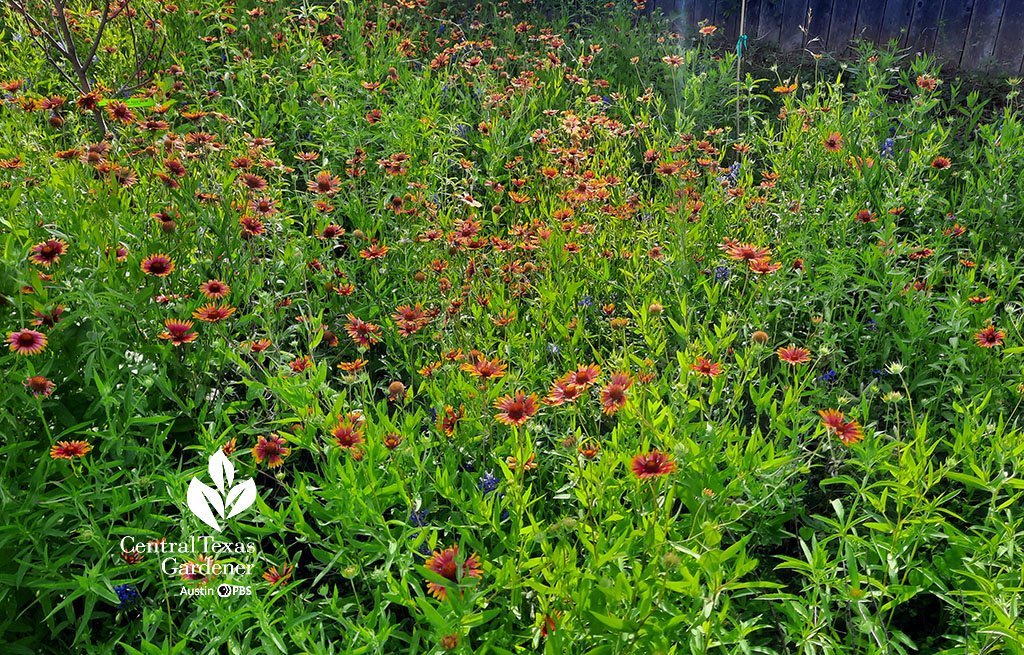
In fall 2023, Aditya vowed to save their dream. He tackled the Bermuda grass (an ongoing project) and ordered pounds of native wildflower seeds from Texas-based Native American Seed. They crossed their fingers and hoped for the best.
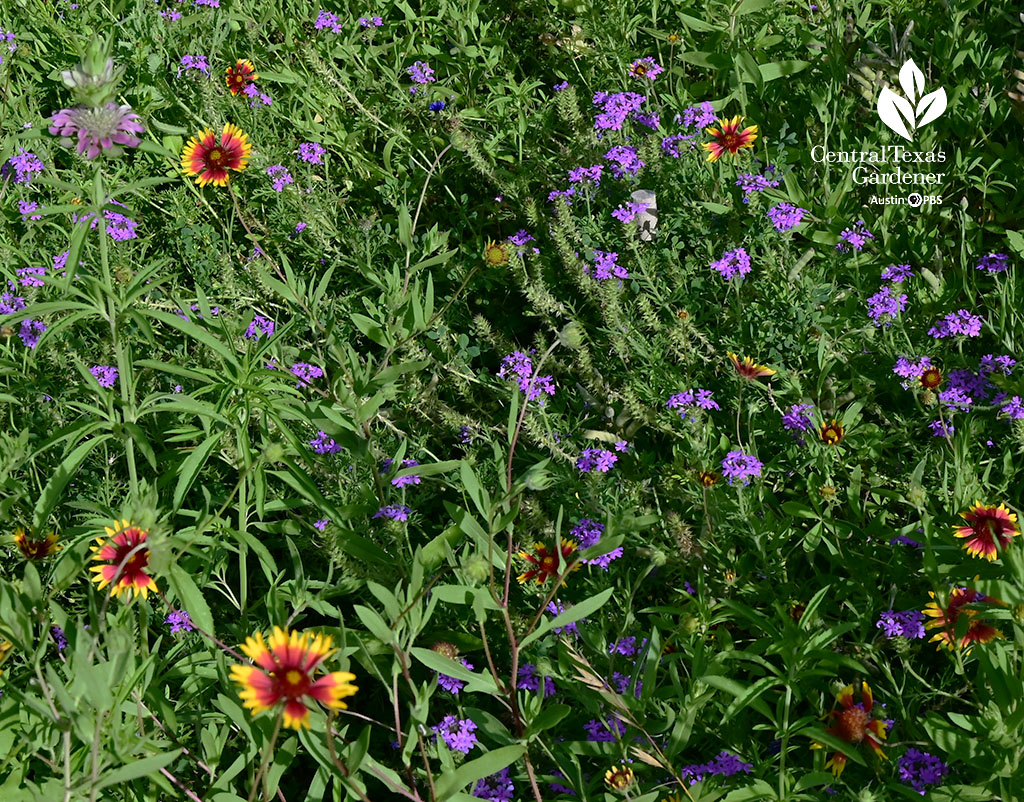
Come spring, they fell in love with their yard. On our visit, bee balm, firewheel, and prairie verbena glowed in a floral rainbow, while earlier bluebonnets were setting seed.
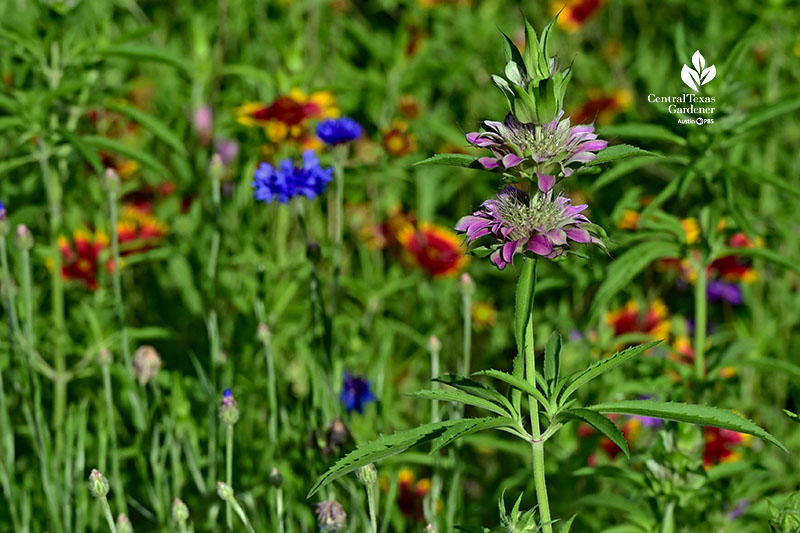
“Watching those changes over the year is incredible,” Aditya said. “You come out to almost a whole new garden every season.”
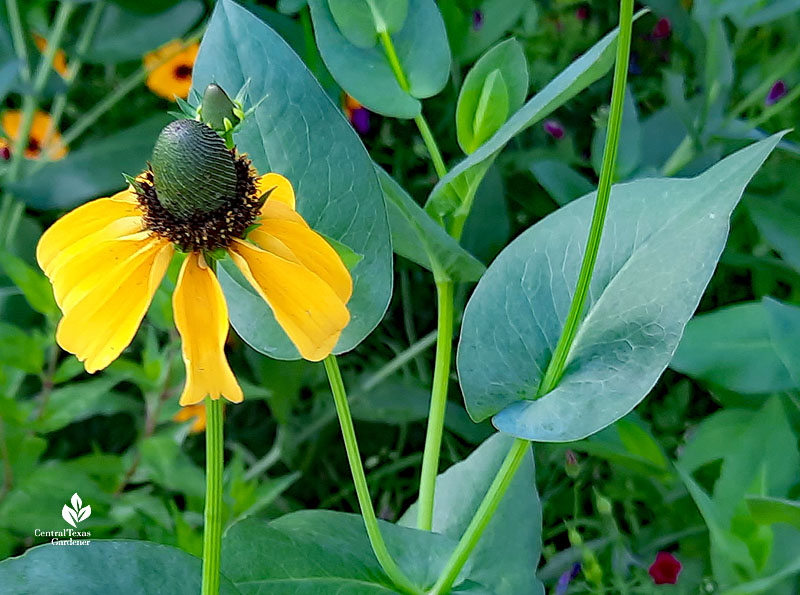
He learned the power of being hands-on, watching sunlight patterns, how pockets of soil vary even in their backyard, and why connecting to each plant’s needs matters. Spring-blooming clasping coneflower joins other sun-loving annuals.
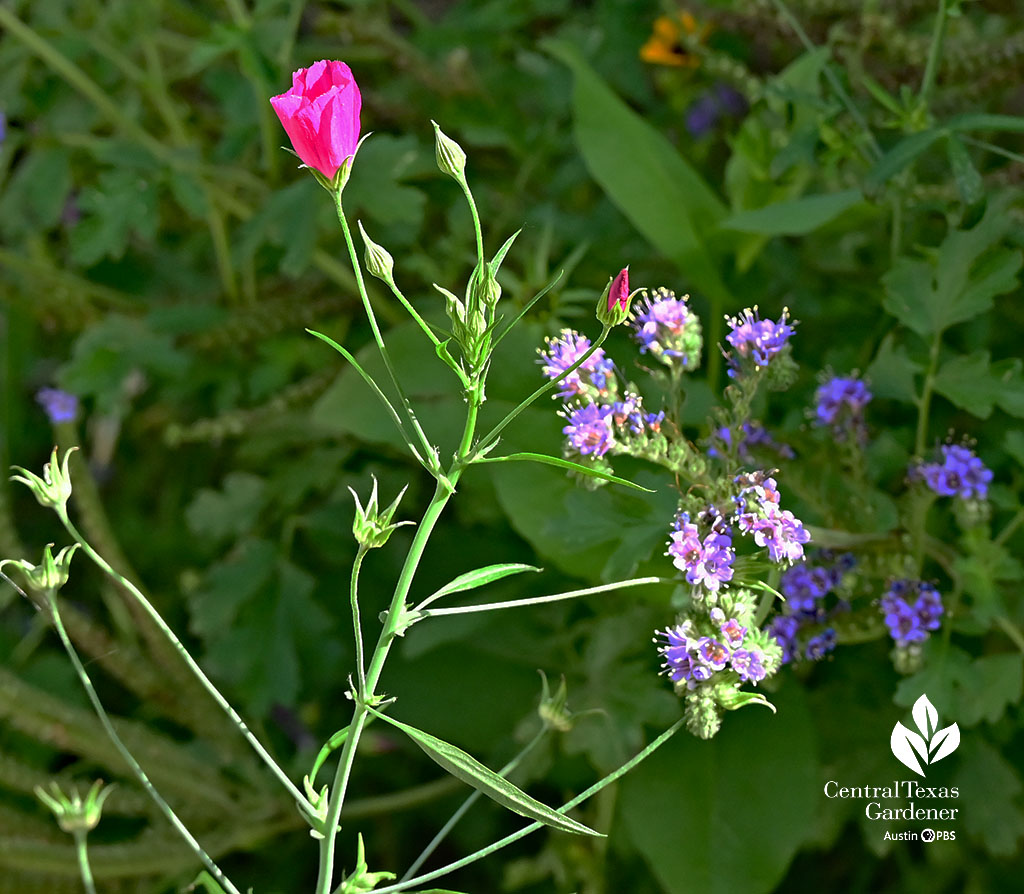
It’s magical for their toddler who can already identify flowers like annual winecups and blue curls.
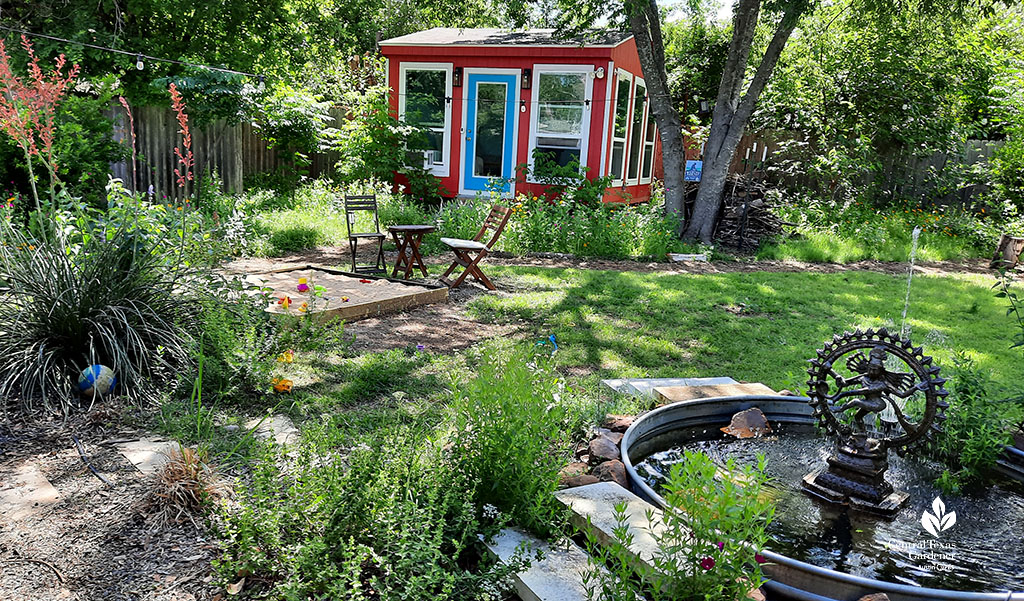
Even in its early stages, the garden’s designed so that any spot they can relax. “We often have breakfast here in the mornings and our toddler will run out into the sandbox and play before daycare starts,” Mansi said.
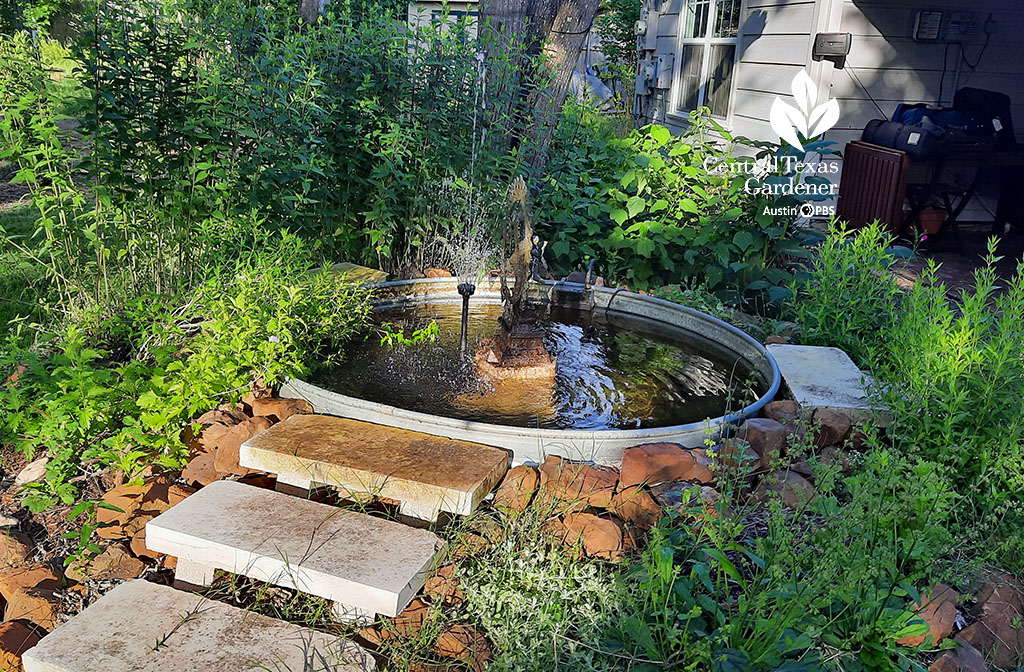
Aditya added, “We had planted all these perennials that provide a habitat for pollinators, for birds, for butterflies, and we realized to complete it, we wanted to add the sound of flowing water,” a requirement for Texas Parks & Wildlife Backyard Habitats. They went for an inexpensive stock tank pond embraced by seasonally blooming perennials, including bee balm, wax mallow, Gregg’s mistflower, and forsythia sage. Even from the inside, they watch hummingbirds, pollinators, and other critters stop by for a meal and a drink.
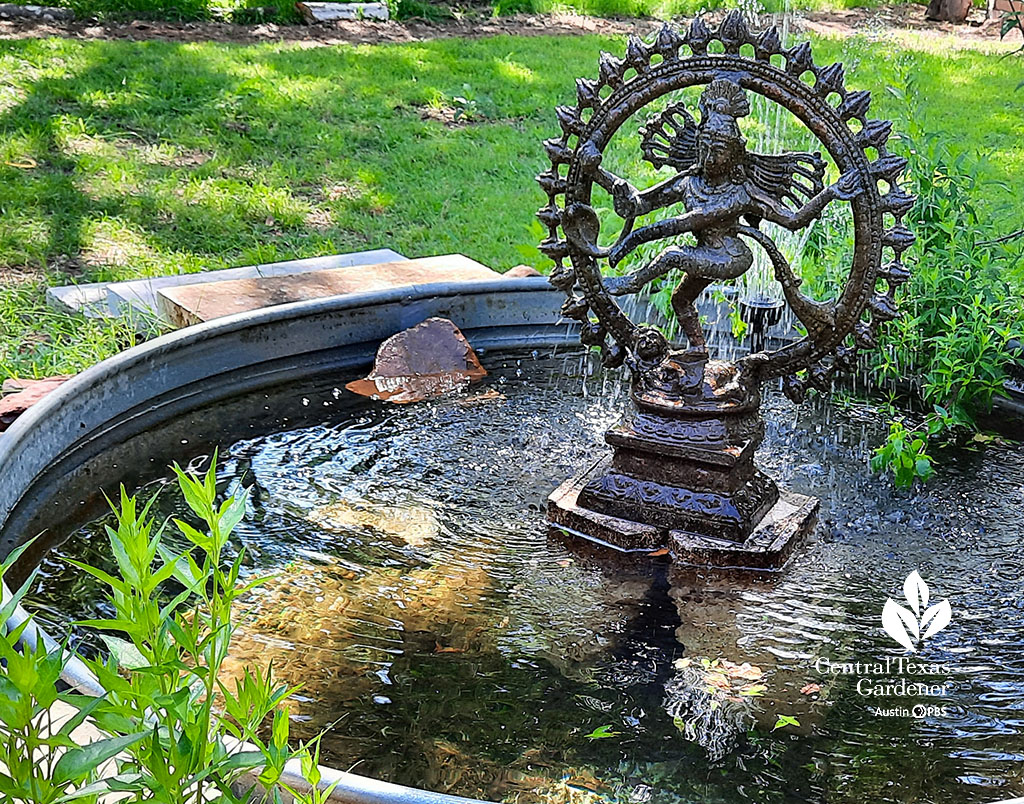
They topped the waterfall with a sculpture that represents the deity Nataraja, the incarnation of Shiva, dancing the universe into existence in each moment. “And it reminds us of how impermanent and glorious and beautiful the moment is that we’re in,” Mansi said.
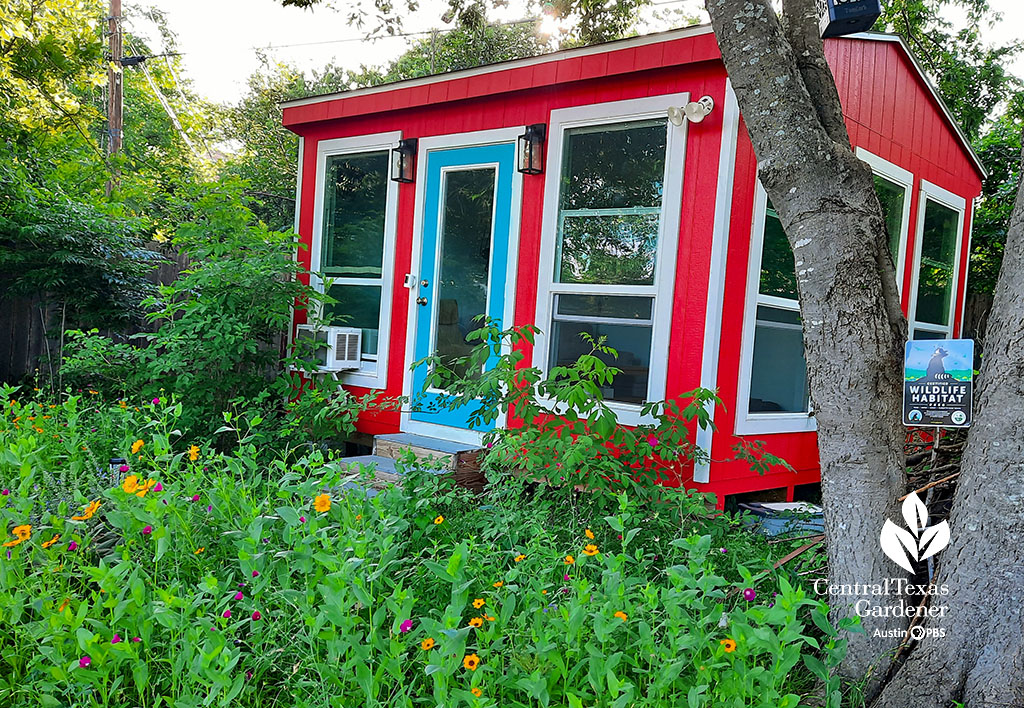
The fountain’s soft rhythm lulls the retreat room during meditations. “We just open the window and hear the water and feel that energy,” Aditya said.
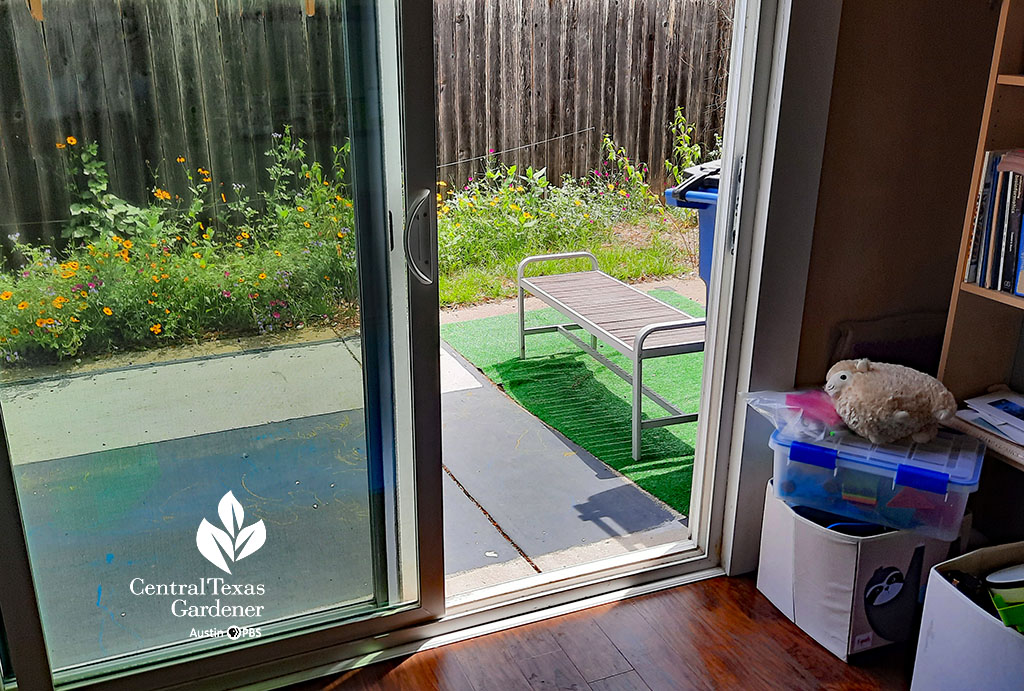
Since their toddler is so connected to the garden, Aditya planted wildflowers outside his playroom to unite Legos and flitting butterfly sensations.
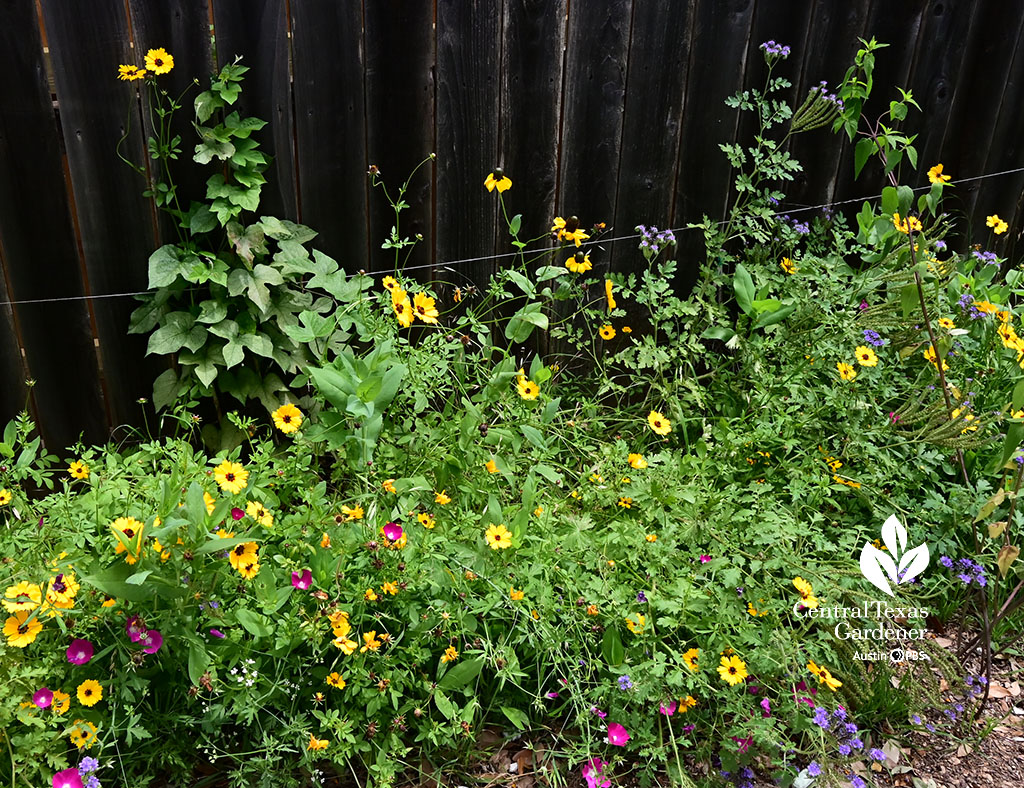
When their son takes his chalks outside to draw his own garden on the concrete pad, I know that the future is in good hands. The fence in May features tickseed coreopsis, blue curls, and winecup.
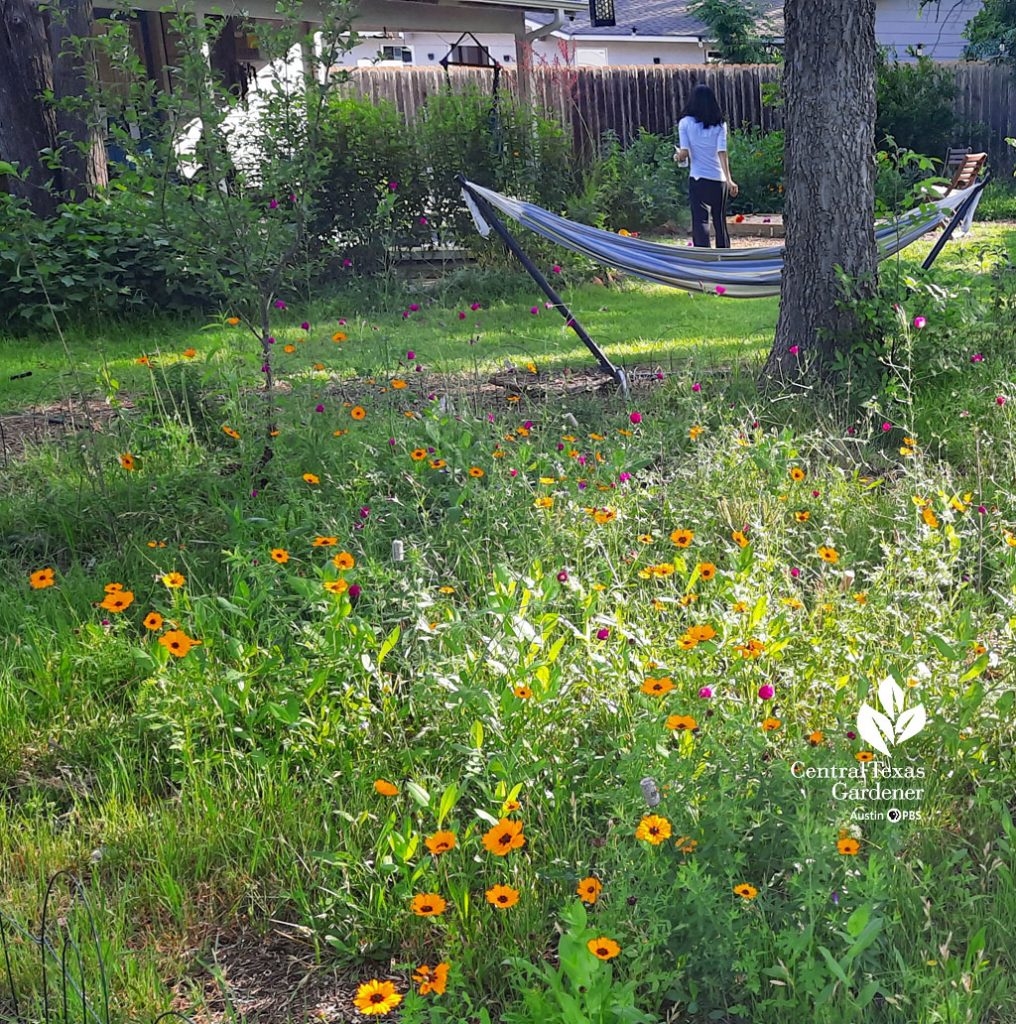
We all know that climate change impacts his future—and all our youngsters—far more than our own. It’s in this garden, through its ups and downs, that Aditya and Mansi discovered a thoughtful progression from yard to responsive awareness.
Watch their story now!
Thank you for stopping by and Happy New Year to you all! Linda
tags:

